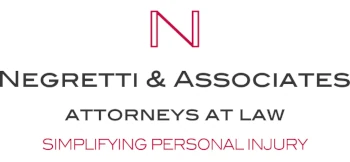Defamation Claims
When people hear the term “personal injury lawyer,” they typically think of auto accidents. It’s common to see personal injury lawyers in TV commercials talking about how they can help victims of auto accidents.
Yet, personal injury law is so much broader than car accidents. Of course, personal injuries can be physical, such as whiplash or broken bones sustained in a car accident. Yet, they can also be emotional in nature — especially when there is damage to one’s reputation.
When a reputation-damaging remark meets a series of criteria, it may be worthwhile to consider filing what is called a defamation claim.
Types of Defamation: The Difference Between Libel and Slander
What is defamation? At its essence, defamation is an umbrella term for a remark that is harmful to one’s reputation. There are two types of defamation: libel and slander.
- Libel is when someone writes something about you that is defamatory and, in turn, harms your reputation. A written defamatory remark can be published in traditional media — such as a newspaper, magazine, or book — as well as in digital media, such as a text message.
- Slander is when someone says something about you that is defamatory and, in turn, harms your reputation.
How Do You Prove Defamation of Character?
If you are the victim or a defamatory action, how do you prove that you have been harmed? There are three key elements to proving defamation of character. You have to prove that the defamatory statement was published or told to somebody else; that the statement was false; and that you were injured in some way
First, you have to prove that the information was published. As mentioned above, a written remark can be published in a newspaper or book, while a spoken remark can be told to someone else, in the presence of another party.
The spoken remark can’t simply be between two people. For example, if someone were to call you a liar in private, with no one else present, then you’ve simply been called a liar. Yet, if a third person is present for the conversation and listening, and someone calls you a liar, then the remark can be considered defamatory.
Second, you have to actually prove that the statement was false. When it comes to defamation lawsuits, there’s a common saying, that “the ultimate defense is the truth.” If someone says something that is truthful, that is the defense to a defamation claim. The party that has been harmed must prove the statement false.
Third, you must prove that the written or spoken statement actually led to injury, and that there was some harm. Again, in the context of defamation, injury can span emotional or financial injury — a dented reputation or a loss of job opportunities, for example.
If the three elements for proving defamation are met, then the victim has what is called an “actionable” defamation claim.
Opinions and Defamation
You will see a lot of defamation suits involving Hollywood actors and actresses. Because of their status, and because their reputations mean everything to them, actors and actresses are more likely to pursue defamation claims when negative things are written about them, or said about them on TV or online.
Yet, defamation claims can be hard to pursue. For a claim to be worth pursuing — in terms of time, money, and effort — one must have a substantial reputation to begin with.
Further, just because someone voices or publishes a negative opinion, and it is truly just an opinion, they may not have made a defamatory statement.
If you believe that you have been the victim or a defamatory statement, and some sort of actionable claim can be made, give Negretti & Associates a call, at 602-531-3911 in Arizona, 619-777-3370 in California, or 720-636-3444 in Colorado. Or, you can click here to contact us with our online form. We’ll be happy to talk with you.
Granted, you may have to put your pride on the sidelines for a minute as we reflect upon the three key elements of defamation: Was the statement published or told to someone else? Was it false? What are the injuries that you suffered as a result of the statement, and did it stop you from getting a job, or cause you to lose your job?



